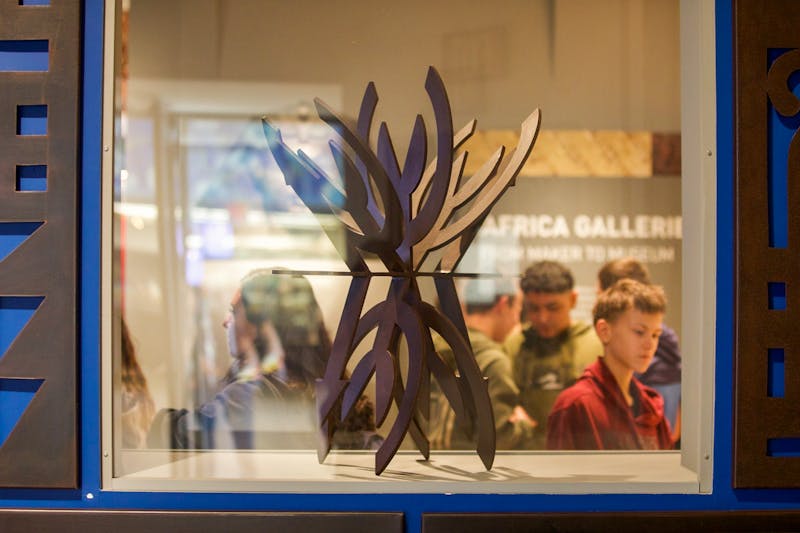
Three new faculty members are joining the Asian American Studies program next year, reigniting hope for the future of the small program after a longtime struggle between the University, students, and faculty to marshal support for ASAM.
The program has also made leadership changes, appointing Asian American Studies professor Fariha Khan as co-director of the program, who will lead ASAM alongside Asian American Studies professor Eiichiro Azuma, who previously served as the director of the ASAM program from 2012 to 2016. Khan and Azuma plan to offer more opportunities for undergraduate students.
“We look forward to welcoming new faculty, expanding our curriculum, [and] adding new courses with a goal of hopefully becoming a major,” she said. “We have a minor, but certainly with increased faculty, we have the potential to be a major.”
Under Khan’s leadership, the ASAM program will offer more courses, research and internship opportunities, and opportunities for collaboration and engagement with Asian American community organizations, Khan said.
The School of Arts and Sciences hired three new faculty members — in the Departments of English, History, and Sociology, respectively — and one full-time administrative staff to join the ASAM program in the 2022-2023 academic year, Khan said. The new hires are a result of efforts announced by SAS Dean Steven Fluharty on March 30 to fill the program's multiple standing faculty positions.
Fluharty's announcement came shortly after ASAM professor David Eng, one of the three tenured faculty members in ASAM, was slated to leave Penn, leaving community members with a sense of hopelessness about the program. Now, Eng is currently on sabbatical but has decided to return to Penn in spring 2022.
“As Penn is now structured, all standing faculty in the program — Professors Eiichiro Azuma, Jo Park, and I — have split obligations between ASAM and our home departments,” Eng said. “Only [Khan] is there on a day-to-day basis. The co-directorship recognizes [Khan’s] central role in the ASAM Program as both a teacher and an administrator.”
Eng had previously told The Daily Pennsylvanian that he intended on leaving Penn at the end of the 2020-2021 academic year as a result of a longstanding issue of declining support for the program and because he and his partner, a law professor at Emory University, wished to find positions at the same university. Eng told the DP that he also received multiple offers of professorship from other universities.
The fight to preserve ASAM, created in the fall of 1996, began when former Sociology professor and founding faculty member and director of the ASAM Program Grace Kao departed for Yale University in January 2017, leaving the program without a formal director. This kicked off protests by Asian American students and faculty members and action by ASAM's Undergraduate Advisory Board, which released a petition asking Penn administrators to heed five suggestions on how to support the program, including increasing administrative support, physical space, and the variety of courses offered for the program.
The ASAM UAB petition that year stated that after Kao's departure four years ago, Khan was left to handle the bulk of the program's administrative duties, "leaving her unable to focus on the growth of the program and limiting her ability to teach."
College senior and co-chair of the Asian American Studies Undergraduate Advisory Board Claire Nguyen noted that Khan’s co-directorship comes at a crucial time for Asian American students.
“It is more clear that the University is interested in not only ensuring the [ASAM] program can exist but also in expanding it,” Nguyen said. “But that’s not to neglect the fact that this is coming at a moment that has been very illuminating for a lot Asian Americans, with the rise in anti-Asian violence.”
The United States has seen an increase in incidents of discrimination and violence directed against Asians and Asian Americans during the COVID-19 pandemic, with many incidents fueled by political leaders who blame China for the spread of COVID-19.
College senior and co-chair of the Asian American Studies Undergraduate Advisory Board Maressa Park said that she hopes that Khan’s co-directorship will increase awareness of the ASAM program and its course offerings.
“Right now, we only have six [students who have] officially declared [ASAM] minors,” she said. “I don’t think that many people know that ASAM courses exist and that they can fulfill humanities requirements across different schools.”
Noting that ASAM was formed as a result of student protests and activism, Khan hopes the students and faculty will continue advocating for the program.
“The past year — with the violence that Asian Americans across the country have faced and with the struggles we have faced on campus — it’s been a time where we have really come together as a community,” Khan said. “Given this renewed energy and support from the University, we hope to have a wonderful celebration through the entire academic year celebrating our 25 years on campus.”
The Daily Pennsylvanian is an independent, student-run newspaper. Please consider making a donation to support the coverage that shapes the University. Your generosity ensures a future of strong journalism at Penn.
Donate






